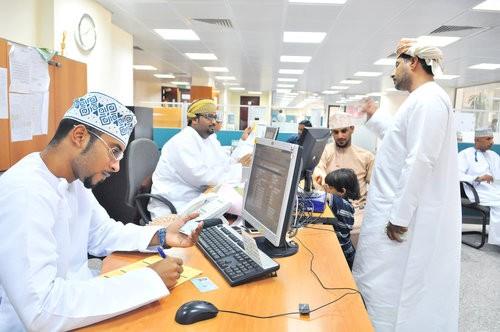
Gulf job market set to grow at 9% Oman at 2%
The results are based on GulfTalent's survey of over 1,100 CEOs and executive managers of firms across the six-member Gulf Cooperation Council, conducted in February-March 2018.
The biggest factor driving employment growth is the recent rise in oil prices and resulting upturn in business optimism. The price of crude oil, which had been in the US$30-50 range for much of 2016 and 2017, has been averaging over US$60 in the past six months.Kuwait is set to have one of the fastest rates of job creation, with a net 18 per cent of firms increasing headcount. The country, with the region's highest dependence on the oil and gas sector, is witnessing a boom thanks to higher oil prices. According to the IMF, it is expected to have the region's fastest economic growth this year.
In the UAE, a net 13 per cent of firms are reporting an increase in personnel, driven by a recovering oil sector in Abu Dhabi as well as growth in Dubai's non-oil sector, including the impact of infrastructure spending for Expo 2020. The Saudi job market is shrinking this year, with a net two per cent of firms reporting a reduction in headcount, mainly due to the government's enforcement of stringent Saudisation policies. While the policy has boosted employment opportunities for Saudis, some firms are seeking to achieve mandatory Saudisation ratios by simply reducing their expatriate workers. Overall, more expats are leaving the job market than the Saudis being hired.
Job growth in Oman at two per cent has been similarly weak. Limited oil reserves have curbed the upside of oil price recovery, while strict Omanisation policies are limiting companies' ability to hire expatriates.
The healthcare sector also continues to expand, thanks to a growing domestic population and a regulatory push to increase health coverage. Banking is another sector witnessing a healthy growth, as the improving macroeconomic environment translates to increased demand for credit and higher lending appetites of financial institutions.
Construction continues to underperform, with very few firms growing headcount. While improving business sentiment and infrastructure investment in the region are favourable factors, payment delays are posing serious cash flow challenges for construction firms.FMCG is another weak sector, registering only six per cent growth. Consumer demand in the region has taken a hit from the introduction of Value Added Tax (VAT) in the UAE and Saudi Arabia, excise taxes on certain goods such as carbonated drinks, reduced subsidies hitting disposable incomes, and the declining expatriate population in some countries.
In terms of demand for skills, the largest upsurge is for finance professionals, thanks to the introduction of VAT and the need to update finance processes and systems. Demand for human resource professionals ranks second as companies seek to re-build HR teams that were drastically reduced over the last three years.Marketing professionals are also in demand as companies fight for customers in an increasingly competitive marketplace.

Legal Disclaimer:
MENAFN provides the
information “as is” without warranty of any kind. We do not accept
any responsibility or liability for the accuracy, content, images,
videos, licenses, completeness, legality, or reliability of the information
contained in this article. If you have any complaints or copyright
issues related to this article, kindly contact the provider above.


















Comments
No comment